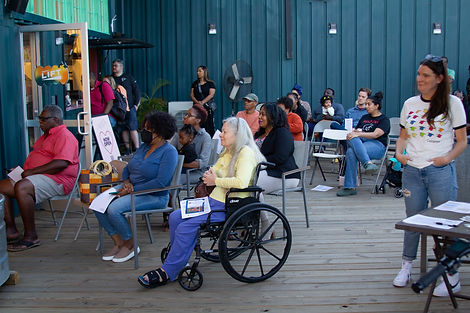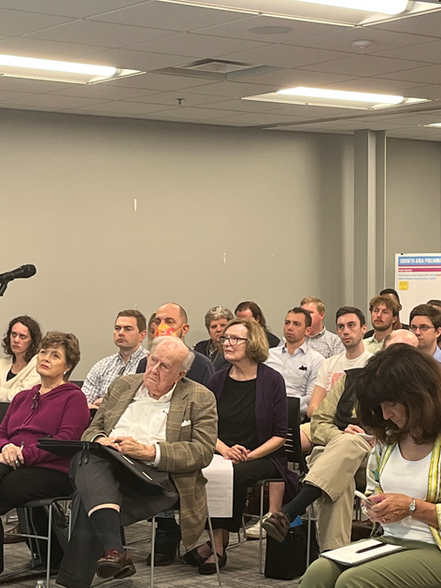Our Projects



We are updating the Atlanta MPO Transportation Public Participation Plan
ARC is currently updating the agency’s Public Participation Plan (PPP) in accordance with the federal regulations governing interested parties, participation, and consultation activities of Metropolitan Planning Organizations (23 CFR 450.316). The PPP will reflect new federal laws, requirements and guidance concerning equity and engagement, and will significantly update and replace ARC’s 2019 Regional Transportation Community Engagement Plan.
ARC is committed to ensuring that stakeholders have a say about what participation should look like. To that end, we have developed a program of activities designed to help us listen to people to learn how they want to participate in the transportation planning process and other agency activities.
What does meaningful engagement look like for you?
Visit the website
Take our survey
Participate in an event!

We specializing in the exceptional task of understanding the problems of individuals and communities and partnering with local government agencies to deliver solutions. BRG works with business owners, developers, investors, non-profits, neighborhood groups, government, and quasi-governmental agencies.
Project History
Public Policy
Affordable Housing Advisory Board (BAHAB)
Entitlements & Regulatory Permitting
Neighborhood Planning
Subarea 1 Master Plan, Atlanta BeltLine Inc.
West End LCI (Livable Centers Initiative)
Strategic Planning
RYSE Creative Village, Atlanta GA
Community Engagement
Special Services District (SSD), Atlanta BeltLine Inc
Arts & Culture Strategic Implementation Plan
Zoning & Development
Zoning 2.0, City of Atlanta Zoning Rewrite, City of Atlanta
1910 Phillips Avenue, City of East Point
Real Estate & Economic Development
The Brunswick African American Cultural Center (BAACC)
Transportation Planning
2024 Atlanta MPO Public Participation Plan – 2024 Update
Connect Clifton Corridor Project
Neighborhood Planning -
SubArea 1 Master Plan
ATL Zoning 2.0
Business Need
In 2015, the City of Atlanta commissioned a team of consultants to conduct a comprehensive assessment of and recommend improvements to the City of Atlanta’s Zoning Ordinance. The City is seeking to create user-friendly regulations, expand transportation options, ensure housing diversity, protect neighborhood character, and create vibrant corridors and districts. The diagnostic analysis and report, performed in 2021, resulted in the Atlanta Zoning Ordinance Assessment that made a series of recommendations for future changes to the Zoning Ordinance, including amendments to the regulations. The Diagnostic categorized the recommendations into two categories -
(1) those that could be completed in a relatively short period of time as “Quick Fixes,” or “Medium Fixes;” and
(2) those that would require a comprehensive overhaul of the current Zoning Ordinance and would likely require a period of two to four years to complete.
Solution
In the the fall of 2022, as a subcontractor to TSW, we provided the design, recruitment, facilitation, and summary reports for five public meetings or Focused Workshops. These workshops were designed to work through and confirm the direction for updating the zoning ordinance and were conducted as hybrid (in-person and virtual meetings) to encourage participation from all Atlanta stakeholders.
Outcome
We improved the meeting participation rates by a factor consistent with pre-pandemic levels, averaging 70-100 in-person participants across all five meetings. The online audience increased by 160% from the previous engagement team, by utilizing new digital strategies that weren't previously leveraged. This audience increase reflected a representative sample of historically disadvantaged communities in metro Atlanta that the Mayor’s Office and the City wants to include in public discourse about our city Zoning. New populations included black men, parents with children, renters, older adults, and legacy residents. Our team provided the communications, government affairs, and public outreach implementation plan, including staffing needs, event dates, venues, logistics, and focus group facilitation. A summary report of data collected from the zoning workshops was provided after each meeting, from the Fall of 2022 through the Spring of 2023.



